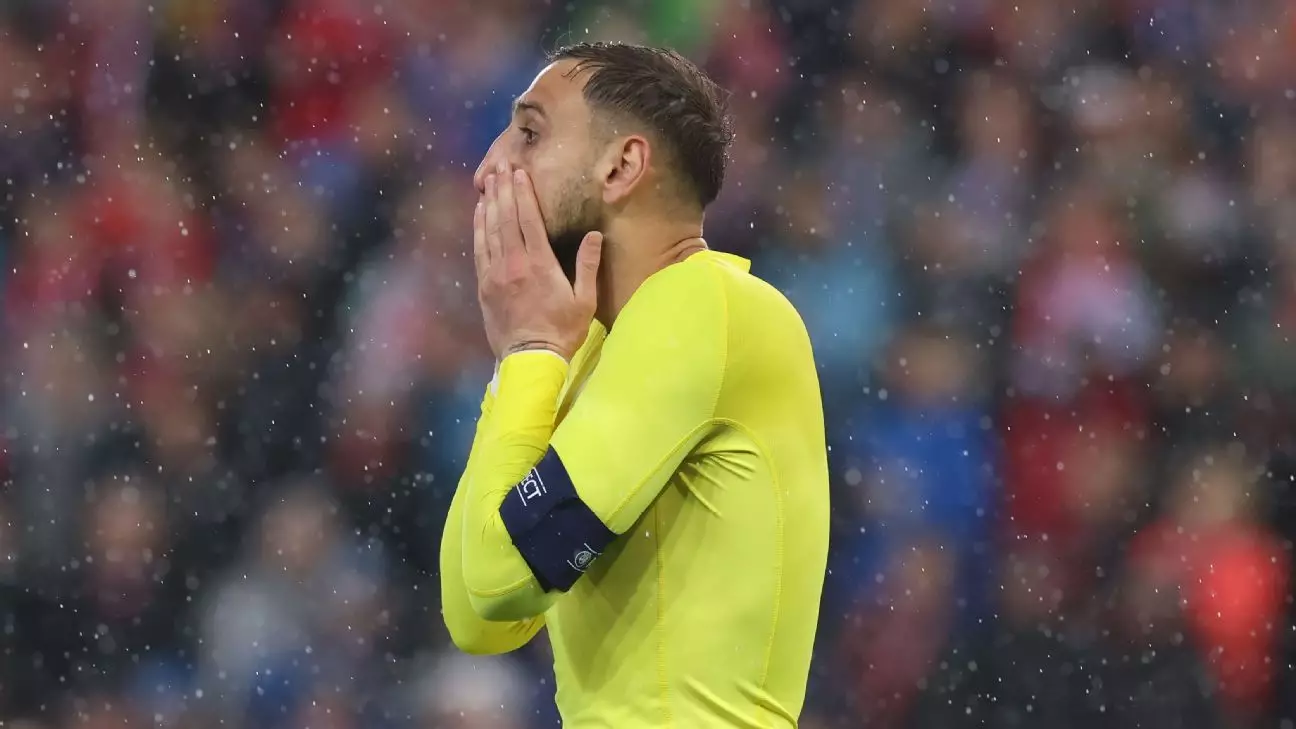Italy’s storied football legacy has taken a severe blow, with the national team suffering a staggering 3-0 setback against Norway as they kick-start their World Cup qualifying campaign. For Gianluigi Donnarumma, this defeat was not merely a scoreline; it was a painful echo of Italy’s disappointing absence from the World Cup since 2014. Once a powerhouse in world football, boasting four illustrious titles, Italy now grapples with questions of identity and resilience. The harsh reality is that the Azzurri’s performance on a dreary night in Oslo was nothing short of unacceptable, and Donnarumma’s raw disappointment resonates deeply throughout the footballing community.
After the first half, where goals from Alexander Sørloth, Antonio Nusa, and Erling Haaland left Italy gasping for breath, it became painfully evident that something is awry. The defensive frailties and lack of cohesion on the pitch were glaring, reflecting a broader malaise within the squad. “I have no words,” lamented Donnarumma. Yet, while his frustration is justified, it also raises crucial questions about leadership, responsibility, and the path ahead for this faltering giant of football.
The Role of Leadership in Crisis
Under the stewardship of coach Luciano Spalletti, Italy faces a persistent struggle to regain its footing. Spalletti’s comments after the match laid bare the deficiencies in the squad, where morale and enthusiasm seem to have waned. “We need a bit more enthusiasm, as individuals,” he stated, hinting at a critical aspect of any successful team: the mental state of its players. Individuals who lack confidence, as Spalletti pointed out, cannot effectively contribute to a cohesive unit. This revelation brings attention to the vital role of psychological fortitude in modern football.
Additionally, the pressure on Spalletti is palpable. With a single automatic qualification spot available in their group and runners-up forced into a precarious playoff, he must now steer the team through stormy waters. The coach’s mention of upcoming discussions with the Italian Football Federation (FIGC) indicates that the stakes have never been higher. He faces a significant challenge: maintaining his position while also reviving a side that desperately needs rejuvenation and tactical clarity.
A Call for Collective Responsibility
Donnarumma’s insistence on collective accountability is another vital aspect of this unfolding drama. Across a range of sports, we often see the best teams rally around adversity, showing improvement through unity and determination. Italy’s squad needs to harness that spirit. “We need to be more united than ever,” he said, recognizing that individual brilliance must coalesce into a team effort. The Azzurri’s pain should serve as collective fuel, transforming discontent into motivation.
Furthermore, the severity of their loss to Norway commands a broader reckoning about Italian football. The Azzurri’s attacking and defensive shortcomings were magnified by Norway’s astute counterattacks, emphasizing the need for a sharper tactical approach. Spalletti’s admission that “this is not who we are” should resonate with the players. The time for complacency has passed; a proactive attitude is paramount as they strive to rewrite their narrative.
What Lies Ahead: A Rocky Road to Redemption
As Italy grapples with the implications of this shocking defeat, the looming specter of failure hangs over the squad. The road to the World Cup is long and fraught with obstacles, but letting one poor performance define their journey would be a grave mistake. History has shown that resilience and grit often lead to redemptive comebacks. For Italy, the imperative is to return to their roots—both in terms of tactical discipline and passionate play that has characterized the nation’s football ethos for generations.
However, will they rise to the occasion, or will the weight of expectations prove too cumbersome? As the team prepares for future encounters, they must shed the weight of this defeat and embody the fighting spirit that once defined them. The time for introspection is now, and the answers lie not just in the individual skills of players but in their willingness to collaborate as a united front. If Italy can evoke that historic passion and conviction, there is hope yet to reclaim their rightful place among the world’s elite footballing nations.

